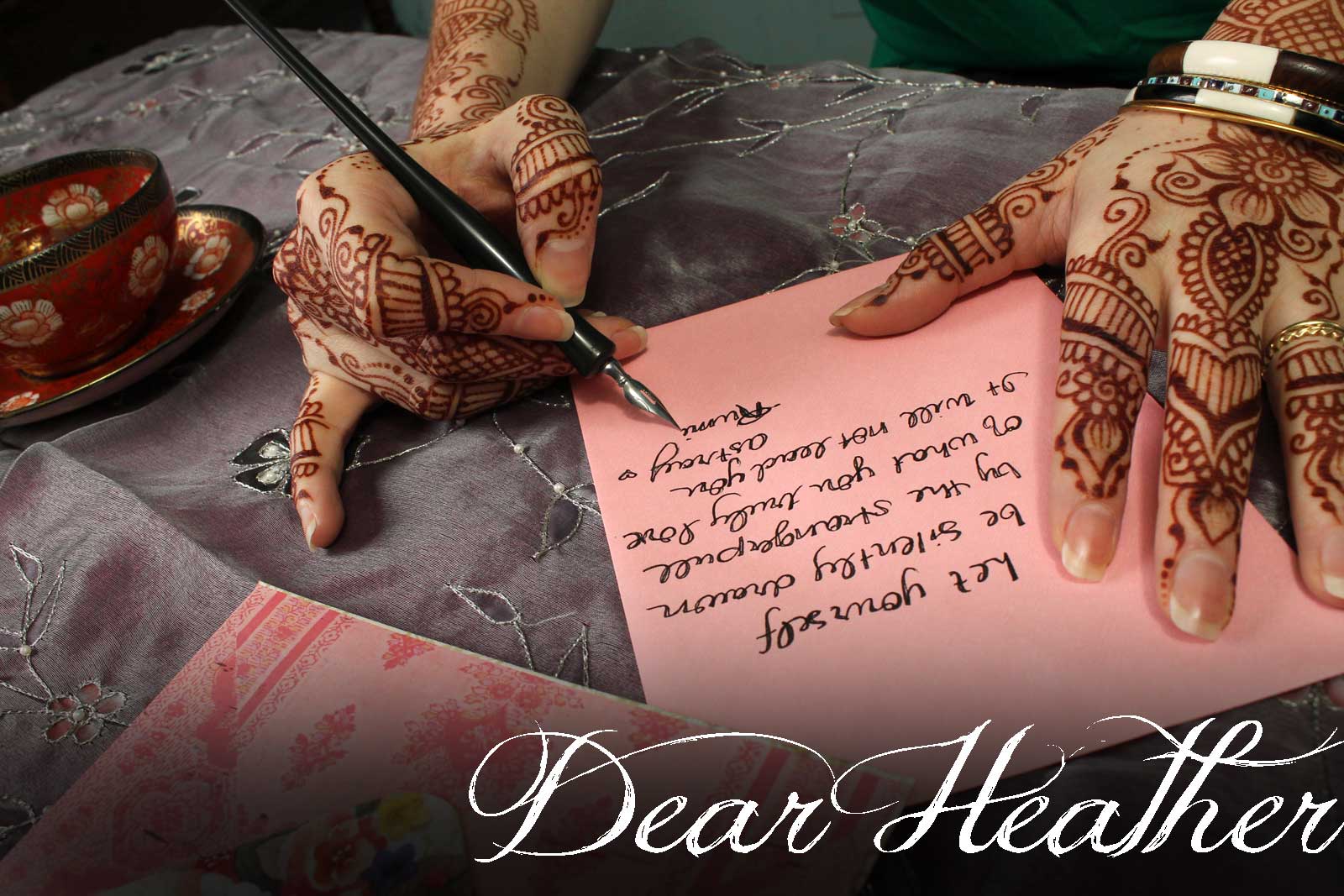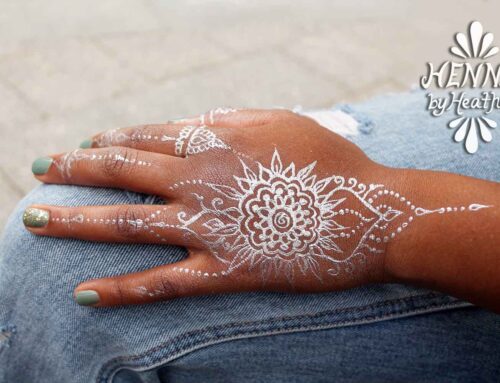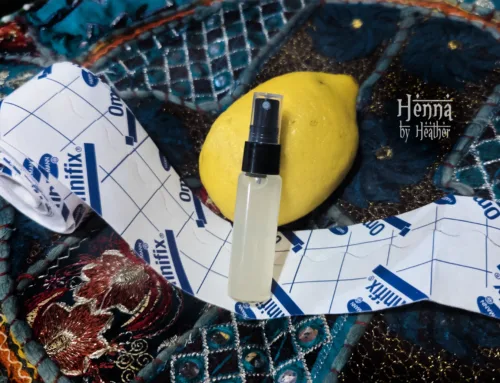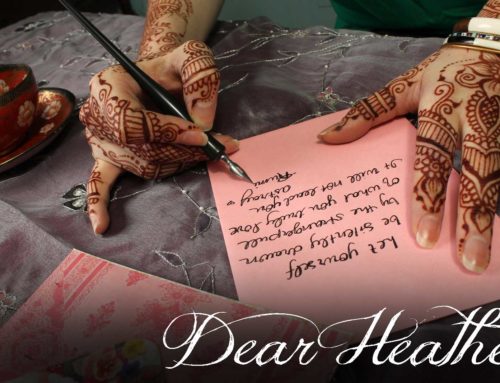Dear Heather,
I see that some henna recipes out there have sugar in them. But your recipe and the one at ArtisticAdornment.com, and so many others don’t have it. What’s up with that? Why would I want to add sugar to my mix? Do I need it? How much and what sugar should I add if I do want to try it?
Thanks,
Short and Sweet
—————————–
Dear Short and Sweet,
Sugar is something you can either add to your mix or not, depending on your climate. Here at Henna by Heather and Artistic Adornment headquarters and pretty much all of the east coast of the United States, it is quite humid. Thus, adding sugar is not necessary, and can even have undesirable effects of making the henna take forever to dry or be very runny and hard to draw with.
If you find your climate is on the dry side, you may want to add sugar to help the henna take longer to dry, insuring it does not flake off too quickly. Recipes you may find that have sugar in them are typically created by people who live in these more arid climates, or people who are simply taking those people’s advice. Henna grows best in very arid climates, so a lot of traditional recipes do include sugar. But if you don’t live in an arid climate, there’s no need to add this extra ingredient in to compensate for it.
So, basically – there is no need to add sugar, unless you find you’re having problems with your paste drying too fast.
But if you are seeing that happen, then yes, sugar is the answer! Just use regular table sugar at first. Just try 1/8tsp at first. Add a little bit more, bit by bit, 2tsp max, in a 100g batch. (You can do more than 2tsp as well – but I wouldn’t recommend it for your first foray into sugar land.)
Using this small amount of sugar should not have any negative impact on the color of your stain. If you use way too much sugar, though, note that stain quality can be negatively affected.
What type of sugar should you use? Well, I recommend regular table sugar at first. A lot of people also really like molasses. One thing to avoid is honey – weird things happen with its chemistry, and some people say that peroxide is created when you put honey into a henna mix. So, basically, it’s a bit of a bleach… which is counter-productive to getting dark colored stains. Some less popular, but also perfectly workable, sugars include maple syrup, jaggery, panela, fructose, and sucrose.
Adding Sugar to Your Henna – Pros and Cons
Pros
- Makes henna take longer to dry – useful if you’re somewhere dry and it dries too quickly on its own.
- Makes henna stay stuck to the skin a bit, and a bit pliable – this is the factor that sells many people on its use.
- Makes henna stringier / slimier – some people who love draping long lines more than they love easily/quickly doing dots count this as a pro.
Cons
- Too much sugar (way too much) makes henna not stain as dark
- Keeping things simpler is easier! Why add it if you don’t need it?
- Makes henna stringier / slimier
- Makes it harder to make nice little dots
- Makes henna take longer to dry – you’ll be doing more smudge repairs if you use it.
- Makes henna wick in more moisture from the air than it does naturally – so if you mix on a dry day (with less moisture available to wick in from the air), and then are out working on a humid one, you might find your henna much runnier than you like it!
It’s really because of that long list of Cons that I have decided that I do not personally like sugar in my henna mix, after many, many years of experimenting with different recipes.
Also, alternatively, if you’ve been mixing your henna with sugar by default because the first recipe you tried had it, and you’ve never thought about *not* adding it… Give it a try! Leave the sugar out, and you’ll get a less stringy, less slimy, easier to draw with, creamier texture to your henna. Unless you like your henna stringy and slimy; some people do (especially those whose designs depend on draping long lines much more than creating perfect, fast dots). It ultimately comes down to personal preference, and what works for you. Try everything! And then stick with what works 🙂
Happy Hennaing,
Heather




